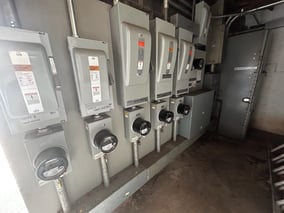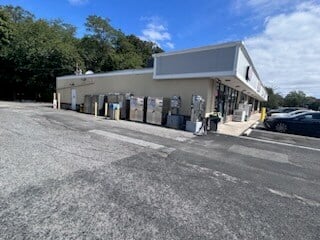The commercial real estate market offers a wide variety of properties that can host multiple tenants, creating multiple streams of income for landlords. Many of these spaces are flex spaces, which may include offices, light industrial operations, or warehousing. While this versatility is appealing, it also brings a higher potential for environmental complications compared to single-tenant office buildings.
A typical multi-tenant property could include tenants such as:
- A satellite sales office
- A solar installation company
- A gymnastic studio
- A light manufacturing business
Of these tenants, most could pose environmental risks. For example:
- Sales offices may store demo products, damaged or expired items, or cleaning compounds.
- Installation companies could store energy products or panels containing hazardous materials.
- Manufacturers often produce waste products that, in states like New Jersey, may fall under regulations such as ISRA (Industrial Site Recovery Act), requiring an environmental audit when the property is sold or transferred.

Even if a tenant who caused an issue has moved out, landlords remain legally responsible for environmental compliance. For example, one landlord recently paid $12,000 to complete an ISRA audit, while others have faced costs exceeding $100,000.
In another case, a property had 16 inches of environmental reports prepared for a buyer, but part of the property was still undergoing remediation. The seller had assumed the property was cleared based on prior reports. Pro tip: if you see references to the EPA, it’s usually a state agency like NJDEP, not the federal EPA—but it still signals a significant environmental concern.
These scenarios highlight why thorough environm ental due diligence is critical for multi-tenant properties. A Phase I Environmental Site Assessment (ESA) is always the starting point, though the typical 2–3 week turnaround may be too fast for complex sites. In many cases, a Phase II ESA is also warranted, especially for older buildings or properties with tenants who may have generated hazardous waste.
ental due diligence is critical for multi-tenant properties. A Phase I Environmental Site Assessment (ESA) is always the starting point, though the typical 2–3 week turnaround may be too fast for complex sites. In many cases, a Phase II ESA is also warranted, especially for older buildings or properties with tenants who may have generated hazardous waste.
We recently worked on a property where cleanup from a current tenant was ongoing, with remediation expected to last another 18 months. The buyer’s lender ultimately declined financing due to the extended remediation period—underscoring the higher failure rate of transactions in multi-tenant spaces due to environmental factors.
📞888-301-1050




